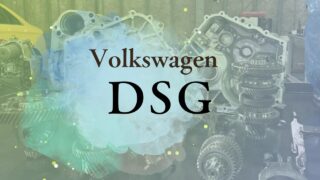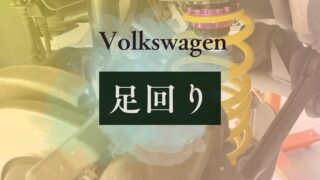Volkswagen (VW) vehicles are praised for their smooth, quiet rides and excellent handling stability.
A vital component supporting this performance is the wheel bearing.
Wheel bearings allow the wheels to rotate smoothly with minimal friction.
However, over time, wear and tear can lead to noise, vibration, and decreased driving performance.
This article explains the symptoms, causes, risks, repair costs, and prevention tips for wheel bearing issues in VW vehicles.
Common VW Wheel Bearing Repairs and Costs (Estimate)
| Service | Estimated Cost (incl. tax) | Notes |
|---|---|---|
| Wheel bearing replacement (one side) | ¥40,000–70,000 ($270–470) | Parts and labor |
| Hub assembly replacement (integrated bearing) | ¥60,000–100,000 ($400–670) | Required on some models |
Costs vary by model, year, and drivetrain (2WD vs. AWD).
What Is a Wheel Bearing?
A wheel bearing is a sealed component inside the wheel hub that reduces friction and allows the wheels to spin smoothly.
VW vehicles commonly use sealed hub bearings, which can last over 100,000 km (60,000 miles) under normal conditions but may wear out early under harsh driving environments.
Common Symptoms of a Bad Wheel Bearing
Signs that your VW may have wheel bearing problems include:
1. Humming or Growling Noise While Driving
The classic sign is a loud “humming” or “growling” sound that increases with speed.
2. Vibration Around the Wheels
Excess play in the bearing can cause vibrations in the steering wheel or body.
3. Unstable Steering or Handling
Loose bearings can cause poor cornering stability or wandering.
4. Uneven Tire Wear
Misaligned wheels from a worn bearing can lead to premature tire wear.
5. Reduced Fuel Efficiency
Extra friction causes unnecessary energy consumption and worse fuel economy.
Common Causes of VW Wheel Bearing Problems
• Age-Related Wear
Metal fatigue and grease breakdown over time lead to ball and race surface wear.
• Impact Damage
Hitting curbs, potholes, or accidents can cause early bearing failure.
• Harsh Driving Conditions
Water, mud, or road salt can enter the bearing and cause corrosion or grease failure.
• Improper Wheel Installation
Incorrect torque on wheel bolts can stress the bearing and reduce its lifespan.
Risks of Ignoring Wheel Bearing Problems
If left unaddressed, wheel bearing failure can lead to:
- Wheel separation (extremely dangerous)
- Damage to surrounding parts like the hub or drive shaft
- Severe vibration and unsafe driving conditions
- Much higher repair costs due to additional part failures
Early detection can avoid major damage and costly repairs.
DIY Inspections and Prevention Tips
• Listen for Noise or Feel for Vibration
If you notice humming or growling noises, have the car checked immediately.
• Request Regular Suspension Checks
Ask your mechanic to check the hub area for play or noise during tire changes or inspections.
• Avoid Rough Roads and Puddles
Minimize unnecessary stress on bearings by avoiding poor road conditions.
• Tighten Wheels to Proper Torque
If changing wheels yourself, always use a torque wrench to manufacturer specifications.
Conclusion: Keep Your VW Smooth and Safe
Volkswagen’s quiet, stable ride depends on healthy wheel bearings.
Though small and hidden, their role is critical.
Detecting early signs of wear and performing timely maintenance will help maintain your VW’s performance and safety for the long run.
Stay aware of any unusual noises or handling changes, and your VW will reward you with years of worry-free driving.








コメント